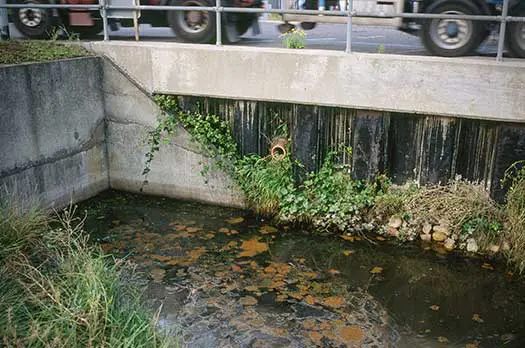Michigan Stormwater Regulation Compliance and SWPPP Strategy
- Leading SWPPP Solutions in Michigan: With a focus on cost-efficient stormwater management, our services in Michigan include plan development and permit acquisition, facilitated by licensed Professional Engineers.
- Comprehensive Assistance with NPDES Permits and Plans: Our support extends to NPDES Stormwater Permits and Plans, emphasizing adherence to Best Management Practices (BMPs) and thorough sample collection for compliance with regulations.
- Local Expertise: Our Michigan-based team, familiar with both state and federal requirements, offers affordable rates and localized knowledge for superior service.
- Guaranteed Compliance: With our SWPPP services, clients in Michigan can ensure compliance, avoiding penalties and fostering smooth project execution.
Request a free custom quote or call 1-833-910-2535
- Leading SWPPP Solutions in Michigan
- Comprehensive Assistance with NPDES Permits and Plans
- Local Expertise
- Guaranteed Compliance














Testimonial
WHAT OUR RECENT CLIENTS SAY ABOUT US
Sachin and his team at RSB Environmental are very helpful with our company’s environmental needs. Always courteous and informative in regards to our questions.
RSB Environmental is a great company, they are easy to work with and handle all our Environmental needs in a friendly professional way. I would recommend RSB Environmental for all your company’s environmental needs.
Stormwater Pollution Prevention Plan (SWPPP) Services in Michigan
Our SWPPP services in Michigan are comprehensively designed to meet the unique environmental and regulatory challenges posed by the state’s varied landscape. Michigan, with its extensive Great Lakes shoreline, dense urban environments, and vast agricultural areas, presents a complex mosaic of stormwater management needs. Our commitment is to develop SWPPP solutions that are not only compliant with Michigan’s state and federal regulations but also specifically tailored to the distinct needs of each locality.
In urban areas, where impervious surfaces like concrete and asphalt exacerbate runoff issues, our plans focus on innovative strategies to mitigate stormwater impacts. This may include the implementation of green infrastructure, such as rain gardens and permeable pavements, which help in natural water absorption and pollutant filtration.

In contrast, Michigan’s agricultural regions require a different approach. Here, our SWPPP services emphasize the management of runoff containing fertilizers and pesticides, employing practices like buffer strips and sediment control structures to prevent pollutants from reaching water bodies.
For industries situated along the Great Lakes, our SWPPP strategies are geared towards protecting these critical water resources. We incorporate advanced measures to tackle contaminants, ensuring that industrial processes do not compromise the health of these lakes.
Our team of experts collaborates closely with clients to understand their specific needs. We conduct thorough site assessments, identify potential pollutant sources, and develop customized SWPPP plans. These plans not only ensure regulatory compliance but also promote sustainable water management practices, contributing positively to Michigan’s environmental stewardship.
Importance of SWPPP for Environmental Compliance in Michigan
In Michigan, the role of a well-structured SWPPP in balancing urban development and natural conservation is paramount. As the state continues to grow and develop, the potential for environmental impact, particularly on water resources, increases. An effective SWPPP is more than a regulatory requirement; it’s a fundamental tool for preserving the integrity of Michigan’s diverse ecosystems, from its inland lakes and rivers to the vast Great Lakes.
SWPPP is crucial for preventing pollutants in stormwater runoff from contaminating water bodies. This is especially significant in Michigan, where water bodies are not just environmental assets but also vital for recreation, tourism, and the overall quality of life. The health of these water systems directly impacts the ecological balance, affecting everything from local wildlife to the purity of drinking water.

Moreover, as climate change brings more intense and frequent storm events, the importance of robust stormwater management in Michigan becomes increasingly critical. SWPPP plans help in mitigating the effects of these events, reducing the risk of flooding and water pollution.
By ensuring compliance with SWPPP guidelines, businesses and municipalities in Michigan not only adhere to legal standards but also contribute to a larger goal of sustainable development. These plans demonstrate a commitment to environmental responsibility, enhancing community relations and supporting the state’s reputation as a leader in environmental conservation.
Understanding Michigan's Environmental Context
Geographic and Climatic Considerations in Michigan:
- Diverse Climate: Michigan's climate varies greatly, influencing stormwater management strategies.
- Varied Geography: From the Great Lakes to inland areas, Michigan's landscape presents unique stormwater challenges.
- Adaptable SWPPP Strategies: Customizing SWPPP to these specific conditions ensures resilient management.
Key Environmental Challenges in Michigan:
- Agricultural Runoff: Michigan's agriculture contributes to runoff concerns.
- Urban Expansion: Cities like Detroit intensify runoff and potential flooding.
- Extreme Weather Events: Michigan's weather patterns heighten water quality and ecosystem risks.
Compliance with Michigan's NPDES Permit Requirements
- Streamlined Application Process: Guidance through the NPDES application and renewal process in Michigan.
- Customized Compliance Strategies: Tailored strategies to fit specific site needs in Michigan, ensuring full regulatory adherence.
Services Offered
Development of Customized SWPPP for Michigan:
- A SWPPP plan contains:
- Tailored to Michigan’s Regulations and Geography: Each SWPPP is uniquely designed to meet the specific environmental and regulatory landscape of Michigan. Special attention is given to the state's diverse geography, from the Great Lakes shorelines to its urban centers and rural expanses, ensuring compliance and effectiveness.
- Incorporation of Local and State-Specific Requirements: Our plans meticulously incorporate both local and state environmental regulations, ensuring comprehensive compliance. We stay updated with Michigan's evolving environmental laws, including those specific to the Great Lakes and inland waterways, to provide you with the most current and effective SWPPP.

Comprehensive Site Evaluations:

- A SWPPP plan contains;
- Site-Specific Risk Assessments: We conduct thorough assessments to identify and evaluate risks specific to each site in Michigan. This approach allows for the development of targeted strategies to mitigate potential stormwater issues, considering factors like proximity to the Great Lakes, local water bodies, and urban runoff challenges.
- Identification of Potential Pollutant Sources: Our detailed analysis identifies sources of pollutants that could affect stormwater quality in Michigan. Our evaluations focus on both natural and anthropogenic sources, such as agricultural runoff, industrial discharges, and urban stormwater, ensuring a thorough understanding of potential impacts.
RSB Environmental can help with:
- Stormwater Pollution Prevention Plan (SWPPP)
- Stormwater Compliance (Industry and Construction)
- NPDES or State SWPermits
- City or County Stormwater Quality Permit Renewals
- Ground Water Investigation/Remediation
- Drinking/Potable Water System Compliance
- Spill Prevention Control and Countermeasures Plans
- Facility Response Plans
- Integrated Contingency Plans
- Training (such as stormwater certificate training)
- Fixed Fee All inclusive Stormwater Compliance Package (starting at $500/month)
The Michigan Department of Environment, Great Lakes, and Energy (EGLE) is tasked with issuing NPDES permits and ensuring compliance with these permits. In Michigan, all entities discharging pollutants from point sources into state waters must obtain an NPDES permit. This program covers various discharges including:
- Municipal
- Commercial
- Industrial wastewater
- Discharges to public wastewater treatment systems
- Industrial and municipal stormwater
- Combined sewer overflows
Storm Water Permits during Operation in Michigan
For industrial activities resulting in stormwater discharge, an NPDES Industrial Storm Water Permit – Notice of Intent (ISW-NOI) is necessary. The permit requires the development of a Storm Water Pollution Prevention Plan (SWPPP), focusing on managing stormwater runoff. Michigan’s online permit application process simplifies compliance, requiring the SWPPP to be submitted with the NOI.
Choosing RSB Environmental for SWPPP Services in Michigan
- Expertise in Michigan’s Regulations: Specialized knowledge of Michigan’s environmental laws and geography.
- Customized SWPPP Solutions: Personalized plans considering Michigan’s unique environment.
- Proactive Compliance: Keeping strategies updated with Michigan’s environmental law changes.
- Cost-Effective Solutions: Competitive pricing tailored for Michigan clients.
Our Service Areas
RSB has conducted Stormwater Compliance projects in Michigan. Please feel free to phone us at 1-833-910-2535 or email at info@rsbenv.com to get a site specific price for your property.
Frequently Asked Questions (FAQs) about SWPPP Services in Michigan
What is a Stormwater Pollution Prevention Plan (SWPPP) in Michigan?
An SWPPP is a document required for certain facilities in Michigan that outlines how they will minimize the discharge of pollutants in stormwater runoff. It’s essential for compliance with both state and federal environmental regulations.
Why is an SWPPP important for Michigan businesses and municipalities?
Due to Michigan’s diverse landscapes, including its Great Lakes shorelines and urban areas, an SWPPP helps prevent water pollution, protecting the state’s valuable water resources and ensuring environmental compliance.
How are SWPPP services tailored to Michigan's specific environmental conditions?
Our SWPPP services are customized to address the unique climatic and geographic characteristics of Michigan, including considerations for the Great Lakes and local ecosystems, ensuring plans are effective and compliant with state guidelines.
Can your services assist with the NPDES permit process in Michigan?
Yes, we provide comprehensive assistance with NPDES permit applications and renewals in Michigan, ensuring that the process is streamlined and that all regulatory requirements are met.
What approach do you take for site-specific risk assessments in Michigan?
We conduct detailed evaluations considering Michigan-specific factors like local geography, potential pollutant sources, and proximity to sensitive water bodies, ensuring that our SWPPP strategies effectively mitigate stormwater-related risks.
Our Registrations and Certifications







Industrial Hygiene

Engineering

Safety

Environmental Compliance





